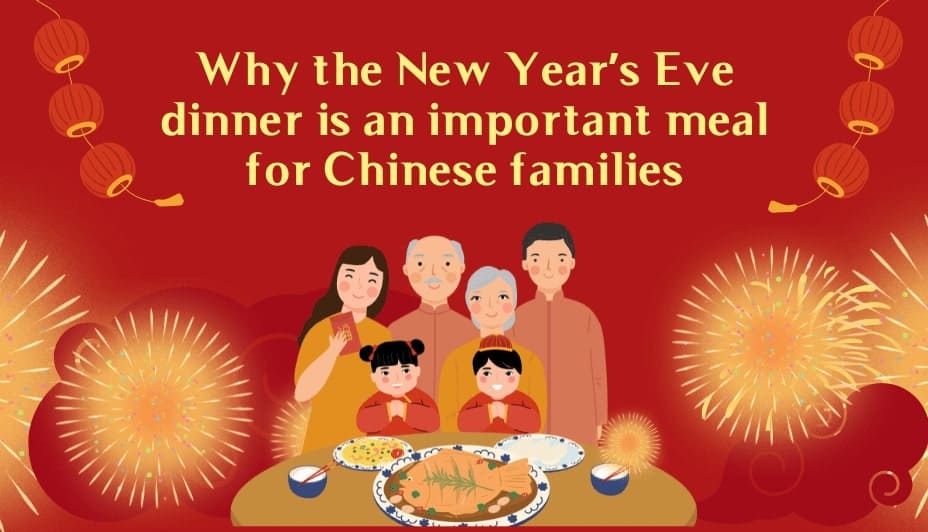
2023-02-15
Why the New Year’s Eve dinner is an important meal for Chinese families
Blog
For billions across Asia and in Asian communities worldwide, the beginning of the Lunar New Year celebrations means
many things. First and foremost, it marks the end of the Year of the Tiger, ushering in the Year of the Rabbit
(2023). Also known as the ‘Spring Festival’ or ‘Chinese New Year,’ this is a time for families to come together and
celebrate with firecrackers, gifts, decorations, and, most importantly, food. The origin of the Chinese New Year
festival can be traced back to a continually evolving series of colourful legends and traditions.
China goes on a week-long holiday, but celebrations for this humongous annual event extend well over a month.
Children eagerly await the red packets (ang bao) from the adults and eat lots of candies! The younger generation
looks forward to wearing that special red dress they bought. People stock up on supplies early as stores will remain
closed during the festival. The waft of New Year dishes and desserts flows in from every kitchen days in advance.
Traditions speak for themselves
The New Year’s Eve dinner is the most important meal for Chinese families. Before the reunion dinner, it is customary for families to worship their ancestors and invite them to join in the family’s celebrations with an offering of food, fruits, tea, and flowers. At this gathering, food is served in abundance regardless of whether the family is rich or poor, as the Chinese believe that having plenty of food during this time would bring the family great material wealth in the New Year.
Delicacies include Chinese sausages, duck, pork, spring rolls, steamed fish, dried sea moss, red dates, dried flaked bean, dried black jelly fungus, ginkgo nuts, transparent rice vermicelli, dried mushrooms, and pickled vegetables.
Symbolism, dumplings, and more food
As with holidays such as Ramazan, Easter Sunday, and Diwali, the food traditionally eaten during Chinese New Year has symbolic significance. Fish, fruit, and dumplings are more than mere snacks; they are believed to bring good luck, prosperity, and happiness to those who eat them. The Chinese language has a rich tradition of homophones or words that sound the same but have different meanings, and this is reflected in the food served during the holiday. For example, ‘fish’ in Chinese sounds similar to the word for ‘surplus,’ symbolising abundance and prosperity.
Similarly, dumplings are a staple during the New Year because their shape resembles ancient Chinese money and is therefore thought to bring financial success. Long noodles (for long life), glutinous rice cakes (for increased prosperity), small glutinous rice balls (togetherness and unity), pork steamed with rice flour (for a successful life and career), and mandarin oranges (for wealth and good fortune) are also traditionally eaten for their symbolic meanings.
Final thoughts
So, whether you are of Chinese descent or not, the reunion dinner is a time to celebrate family, friendship, and unity – as well as to enjoy the company of those you love. The focus on family, food, reflection, forgiveness, and looking forward to the future is what makes the Chinese New Year such a special and meaningful time for many.
Ultimate JB Food Guide 2025: 60 Best Cafes, Restaurants, And Stalls In Johor Bahru
Deliveroo Is Shutting Down After More Than 10 Years In SG
10 Best Ramadan Bazaars In 2026 To Enjoy With Your Loved Ones
There’s A New “Cave” Korean Restaurant In Sentosa With Premium K-BBQ And Marinated Raw Shrimp








